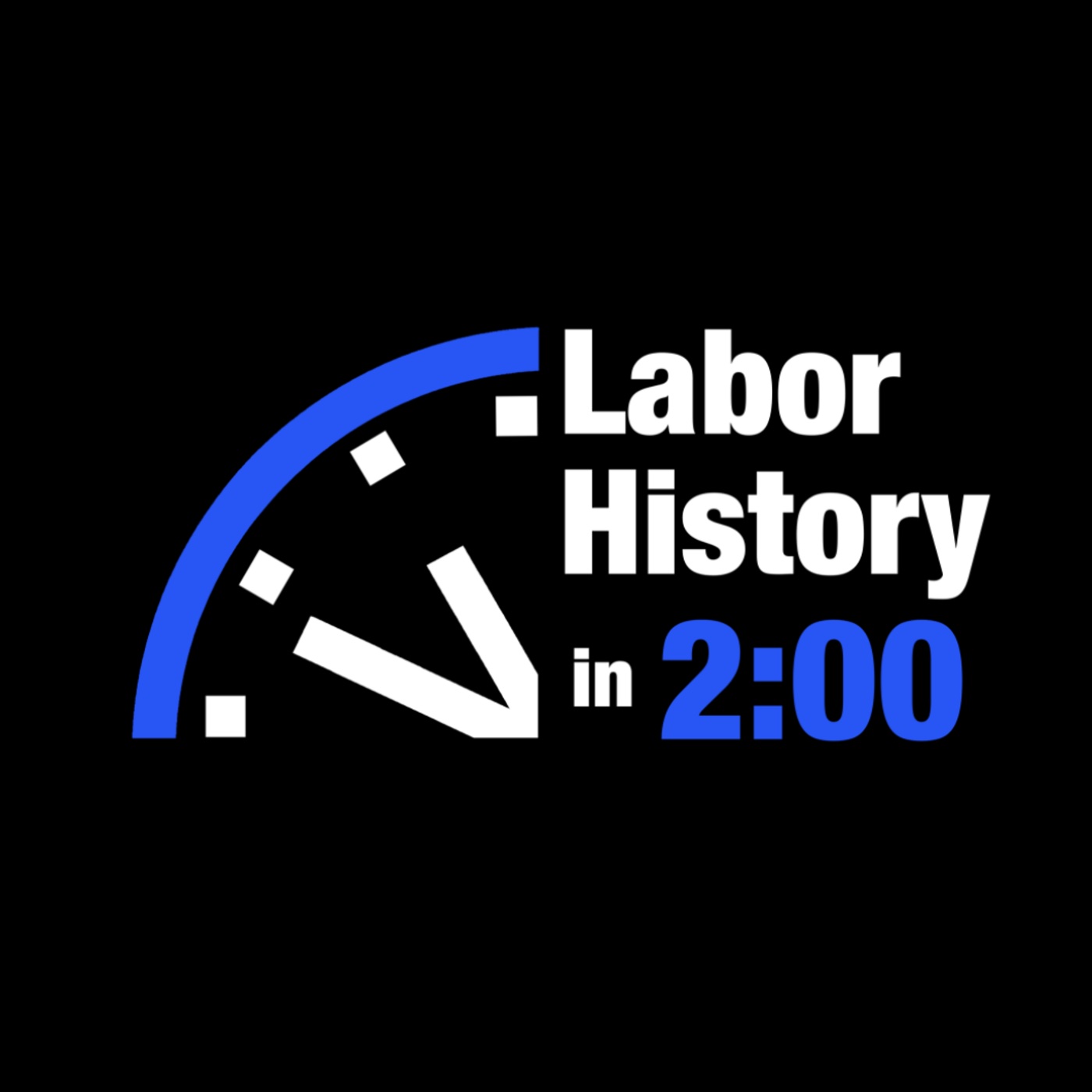Episodes

Sunday Feb 15, 2026
February 15 - The CIO Purges Its Militants
Sunday Feb 15, 2026
Sunday Feb 15, 2026
On this day in Labor History the year was 1950. That was the day that the Red Scare took its toll on the US Labor Movement.
The Congress of Industrial Organizations expelled the International Union of Mine, Mill and Smelter Workers for their alleged Communist ties.

Saturday Feb 14, 2026
February 14 - Frederick Douglass is Born
Saturday Feb 14, 2026
Saturday Feb 14, 2026
On this day in Labor History the year was 1818. That was the day that abolitionist Frederick Douglass chose to celebrate as his birthday. He could not be sure of the exact date of his birth, because he was born into slavery. He escaped from slavery and became one of the leading black writers and orators for the cause of abolition.

Friday Feb 13, 2026
February 13 - Sons of Vulcan
Friday Feb 13, 2026
Friday Feb 13, 2026
What labor union would you say has the coolest name? The Sons of Vulcan would most certainly have to be in the running. On this day in Labor History the year was 1865. That was the day the Sons of Vulcan ended their eight-month strike and won a union contract. The Vulcans were skilled steel workers.

Thursday Feb 12, 2026
February 12 - The Most Dangerous Woman in America
Thursday Feb 12, 2026
Thursday Feb 12, 2026
On this day in Labor History the year was 1913. That was the day that the labor leader known as “Mother” Jones was arrested in West Virginia. She was there to support coal miners during the Paint and Cabin Creek strike of 1912-1913. The West Virginia coalfields were one of the bloodiest sites of labor conflict in US History.

Wednesday Feb 11, 2026
February 11 - Sweet Solidarity
Wednesday Feb 11, 2026
Wednesday Feb 11, 2026
On this day in Labor History the year was 1903. That was the day that workers in Oxnard, California took a united stand and showed the power of solidarity. Oxnard was a California boom town. The American Beet Sugar Company, owned by the Oxnard brothers, drew hundreds of workers to the area.

Tuesday Feb 10, 2026
February 10 - Solidarity at the Gate
Tuesday Feb 10, 2026
Tuesday Feb 10, 2026
On this day in Labor History the year was 1971. That was the day that is known in Great Britain as the Battle of Saltley Gate.
30,000 Birmingham engineers had walked out in solidarity with a strike by the National Union of Mineworkers.
The miners were taking a stand against austerity pay.

Monday Feb 09, 2026
February 9 - Remembering George Lippard
Monday Feb 09, 2026
Monday Feb 09, 2026
On this day in Labor History the year was 1854. That was the day that novelist George Lippard died in Philadelphia. Lippard was friends with Edgar Allen Poe. He is most well-known for his novel about Philadelphia titled Quaker City. The book is considered to be one of the first American muckraking novels.

Sunday Feb 08, 2026
February 8 - Spacemen Strike Back
Sunday Feb 08, 2026
Sunday Feb 08, 2026
On this day in Labor History the year was 1974. That was the day that a three-man American astronaut crew returned to earth from eighty-four-day mission at the Sky Lab. They were the first crew to spend so long in low-earth orbit up to that time.

Saturday Feb 07, 2026
February 7 - The Sugar That’s Not So Sweet
Saturday Feb 07, 2026
Saturday Feb 07, 2026
On this day in Labor History the year was 2008. That evening at 7:15 p.m., an explosion rocked the city of Wentworth, just outside of Savannah, Georgia. An explosion had gone off at Imperial Sugar. Highly combustible sugar dust had ignited.

Friday Feb 06, 2026
February 6 - The Seattle General Strike
Friday Feb 06, 2026
Friday Feb 06, 2026
On this day in Labor History the year was 1919. That day began the week-long general strike in Seattle, Washington. As World War I drew to a close many workers in the city were frustrated by two years without pay increases due to the war. 35,000 workers in the shipyards walked off of the job.

